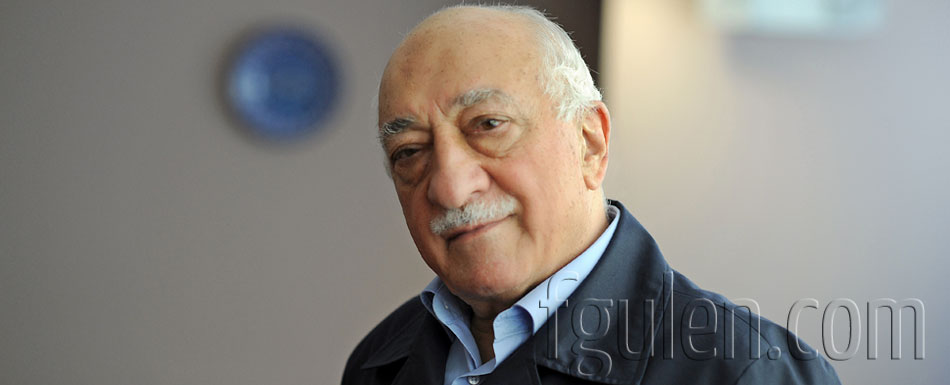In order to transcend the inertia or, in Fethullah Gülen’s words “freeze,” that we are observing in the Islamic world, is Ijtihad appropriate?

The word Ijtihad, independent reasoning, literally means “to use all your power and effort in order to bring some hard and difficult works into existence.” In Islamic terminology, the word means “to use all your power to deduct some hypothetical judicial decisions from the clear sources [adilla-i tafsiliyyah] of Islamic law.” The one who makes this effort is called a Mujtahid. The issue in which these efforts are made is called Mujtahadun fih.
In principle, there are two conditions for Ijtihad. First, one must know the sources of Islamic law related to legal judgments [ahkam]. Second, the Ijtihad should be done by those who are able to penetrate into the spirit of the sources through their intelligence and the logic of religious law. Any Ijtihad that comes from an eligible person and is done within an appropriate case is valid.
Moreover, Ijdihad is not limited to analogy [qiyas]. It can be done through analogy as well as through the indications, clues, and the hints of the legal texts. It is also possible to deduce legal judgments from the linguistic aspects of the Qur’an and the Sunnah, including Arabic rhetoric dealing with metaphorical language and literary figures.[1]
According to Fethullah Gülen, it is also necessary:
Islam, being the last and universal religion, is the epitome of solutions to the problems of humans for all time and for all locations. These solutions are based on the limited texts of the Qur’an and the Sunnah, which address the unlimited problems of humans. This blessed activity started in the era of the Prophet and developed in the 3rd and 4th centuries under the names of ijtihad, ra’y [subjective legal opinion], istidlal [inference], qiyas [analogy], and istinbat [deduction]. It has remained alive within the practice of the dynamic systems of Islam and has been highly fruitful.[2]
Fethullah Gülen believes that ijtihad is an essential vehicle through which religious regulations, rules, precepts, and the interpretations derived from the legitimate sources provide the flexibility for Muslim societies to adapt to change, maintain their dynamisms, and meet new needs. Indeed, after Muslim societies lost this dynamic vehicle of change and the flexibility it provided, the decline and the “freeze in time” began:
This rich and original legal culture, unique to the Islamic world, has been fading for reasons such as exclusion of the active Islamic system of life from the public sphere, the absence of active minds similar to those of the early period of Islam, the lack of inspired spirits, and deficiency of superior intellects, knowledgeable of the Qur’an and the Sunnah. There are some who lack reasoning with insufficient intelligence, and are very behind in their knowledge of the Qur’an and Sunnah, and closed to inspiration. Since these types of people have risen to power in religious circles, the fertile institution of ijtihad has been replaced by unquestioning adoption [taqlid] memorization, and copying.[3]
Fethullah Gülen points to other factors which led to the closing of the door of ijtihad:
… political oppression, inner struggles, the misuse of the institution of ijtihad, an extreme trust in the present legal system, the denial of reform, the blindness caused by the dominant monotonous present system of the time. All of these are among the reasons for this loss. Furthermore, the believers who were eligible to perform ijtihad based on their intelligence and abilities were at times included mistakenly among the groups of heretics who misused ijtihad.[4]
While he regrets the closure of the door of ijtihad for limiting change and renewal, he nevertheless notes that, even if unintended, it might be a blessing in disguise:
The door, in fact, has never been closed by anyone. However, some ulama had the inclination to close the door of ijtihad against those who would like to promote their own desires and interpretations as guidance. The door was closed automatically in the face of those who were not eligible to make ijtihad. As long as society does not have quality scholars who can perform ijtihad, it is not possible to ignore the argument of those who are against ijtihad. …
Despite all of this mentioned above, there has been a great revival of religion and religiosity in the Islamic world today. I hope—God willing—this development will result in the rise of those who are eligible to open the door of ijtihad in the near future.[5]
When asked directly, “Are you a mujtahid?” Fethullah Gülen smiles and answers with a sense of humor: “No, I am not, but when I see one, I would recognize one from his eyes.”
Fethullah Gülen argues that the time has arrived for Muslim societies with their scholars, thinkers, and theologians to interpret the world and themselves outside the paradigms and categories of Western thought. He believes that ijtihad, made operational again, will generate new syntheses and movement of thoughts:
It is my conviction that when the proper season comes, such gushing spirit and ingenious intellect will compose groups comprised of specialists in their fields with an utmost sense of responsibility to undertake ijtihad. I hope that through such consultation, these groups will bridge the gap that has been generated since the loss of the spirit of ijtihad.[6]
[1] Sarıtoprak and Ünal 2005, 458.
[2] Ibid.
[3] Ibid., 460–461.
[4] Ibid., 461.
[5] Ibid.
[6] Ibid.
- Created on .
